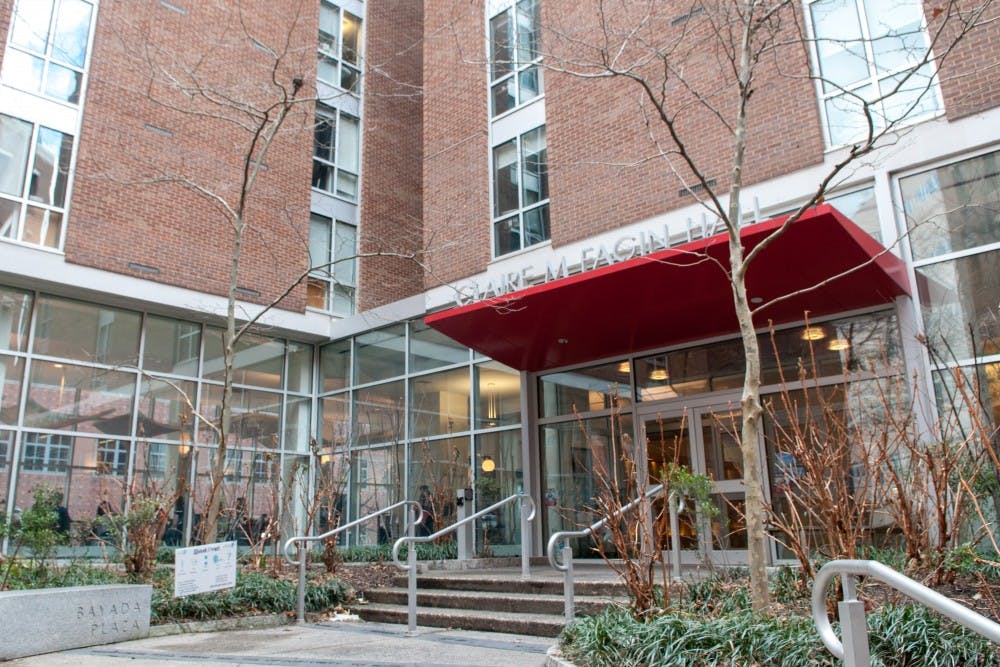
While some peer advisors send "good luck" texts before midterms and bring their advisees candy during finals, others are often not heard from after New Student Orientation.
Credit: Zach SheldonPenn has peer advising programs across schools meant to connect freshmen with upperclassmen, but the degree to which these programs are used varies widely.
There are two similarities among students who found their peer advisors to be useful: communication beyond New Student Orientation and a shared major.
According to their websites, the College of Arts and Sciences and the Schools of Engineering and Applied Science and Nursing each have a peer advising program to provide incoming freshmen with guidance from older students. For Wharton students, peer advising fellows are available by appointment but are not specifically provided.
The Daily Pennsylvanian surveyed 24 freshmen, and only four responded that they had found their peer advisor to be useful. Three of the four noted that they had contacted or been contacted by their peer advisor after NSO.
Anika Gusick, a Nursing freshman, praised her peer advisor for consistently reaching out to her during the semester. Gusick added that her peer advisor put a “welcome” sign on her door, came to her room to help arrange her schedule, sent her “good luck” texts before midterms, and left her a bag of candy before finals.
“For me, she is the most helpful person on Penn’s campus,” Gusick said.
Niel McDowell, associate director of academic advising and assistant dean for advising in the College, spoke about how the College’s peer advising program focuses on summer registration through New Student Orientation.
“We have aspirations for the peer advising relationship to continue through the fall, but it’s hard once everyone becomes involved in what they’re doing during the semester,” McDowell said.
The four students who reported their peer advisor to be useful also said their peer advisor was pursuing their same major. Gusick and another student are in Nursing, while the other two are in Engineering and the College.
On the other hand, College freshman Bill Kalish discussed how when he needed registration help, he went to his pre-major advisor instead of his peer advisor. In fact, he was not even sure if he had met his peer advisor, saying “she might have been the one to give the tour on the first day.”
While a pre-major advisor is typically aligned with students of similar interests, a peer advisor is not, according to McDowell. Each peer advisor advises approximately 10 to 12 freshmen, making it difficult to connect them with freshmen of common majors or interests.
Gusick emphasized how important it was to have her peer advisor as a support system throughout the first semester.
“I thought that we would lose contact, but she was always there for encouragement,” Gusick said.
The Daily Pennsylvanian is an independent, student-run newspaper. Please consider making a donation to support the coverage that shapes the University. Your generosity ensures a future of strong journalism at Penn.
Donate







